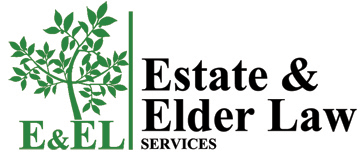Court Decisions Holding Personal Representatives of Estate and Trustee Personally Responsible For Taxes

Recently the United States Tax Count issued several decisions regarding the tax liability of transferees. The transferees were individuals who received distributions from transferors, which were corporations which sold their assets and then made distributions of the proceeds without paying the tax of the gain from the sale of assets. Once the assets had been distributed to the transferees, the corporate transferors were insolvent and unable to pay the tax owned.
Some of the transferees were minority owners who were legally bound by their agreement with the other owners to participate in the liquidation. The agreement is known as a “drag along agreement.”
In determining the tax liability of individual transferees for corporate transferor tax, the U.S. Tax Court applies state law to determine whether the transfer from the transferor to the transferee is fraudulent from the view of the creditor, in this instance the IRS. The state jurisdiction was Wisconsin, but the fraudulent conveyance statute applicable is the Uniform Statute which is applicable in most states with minor exceptions. Alta V Limited Partnership, et al. TC Memo 2020-8.
In a second case, carelessness in administering an estate can result in tax liability for both the executor serving as personal representative of the estate and for the beneficiary receiving property before taxes to the government are paid.
After the death of her mother a personal representative continued to manage property and live in them, essentially taking them as her own. Two beneficiaries received cash distributions before the tax obligations of the estate were paid. Supporting the government’s case against both the personal representative and two beneficiaries the Court wrote that tax liability immediately is imposed upon an estate and the personal representative is liable to the extent of the estate property. When the estate fails to pay its taxes, the liability for those taxes is imposed upon the transferees of the estate property. Liens that the government, here the IRS could asset against the estate property can be asserted against those who received property from the estate when taxes had not been paid.
[D]istributees and testamentary beneficiaries are liable, in an action, to the extent of the value of any property received by them as such, for the debts ... of a decedent, the expenses of administering his estate and all taxes for which the estate is liable, which have not previously been recovered from the personal representative or from any other source. U.S. v. MARIN, 125 AFTR 2d 2020-6
When acting as personal representative or trustee it is possible to be discharged of responsibility for an estate or trust if one follows the correct procedures. In U.S. v. Paulson, et al., 145 AFTR 2d 2020-1429, the personal representative and trustee entered into an agreement with the beneficiaries and had the agreement made a court order in state court. He then filed the appropriate documents with the IRS while tax was still due, but the estate and trust were still solvent and had reached an agreement with the IRS to pay the tax over a period of years, which is common. When the estate defaulted, the IRS could not hold the discharged trustee responsible for the estate taxes.
Although the above cases deal with income and estate taxes in the context of federal law, the same principles are applicable to administration of trusts and estates in Delaware. IMO The Estate of Helen L. Rose, Chan. Ct., 7/9/2019, the Court of Chancery held that the Personal Representative of an Estate breached her fiduciary duties by selling a house owned by the Estate to herself.
The property was listed on the Inventory filed with the Register of Wills by the Personal Representative for $120,000, appraised for $128,00 and listed for sale by the Personal Representative on behalf of the Estate. The property did not sell, because the brother of the Personal Representative and son of the decedent lived in the property and refused to let anyone in to see it. The only offer was for $90,000.00. Testimony established the brother/son lived in the house five years rent-free. The Personal Representative sold the property to herself at a substantial discount, arguing it was the real fair market value of the property. The brother/son then left the house. Under Delaware law, when a fiduciary, such as a trustee or personal representative of an estate purchases property from the estate, the transaction is considered self-dealing and voidable, unless the fiduciary can show that the transaction was fair and that the beneficiaries consented to the transaction after receiving full disclosure of its terms. In this instance, a beneficiary did not consent and objected to the sale.
The Court ordered the Personal Representative to pay the difference between the appraised value and the actual purchase price or to return the property to the Estate. The Court also ordered the Personal Representative to pay the attorney’s fees personally. Finally, although the matter was not decided, the Court noted because the brother/son had lived in the property for five years rent-free, that the fair market value of the rent could be deducted from his share of the estate.
Administering an estate seems like simply filling out a bunch of papers and making sure the numbers are correct. The responsibility runs deep and consequences reach far beyond the last paper filed.
